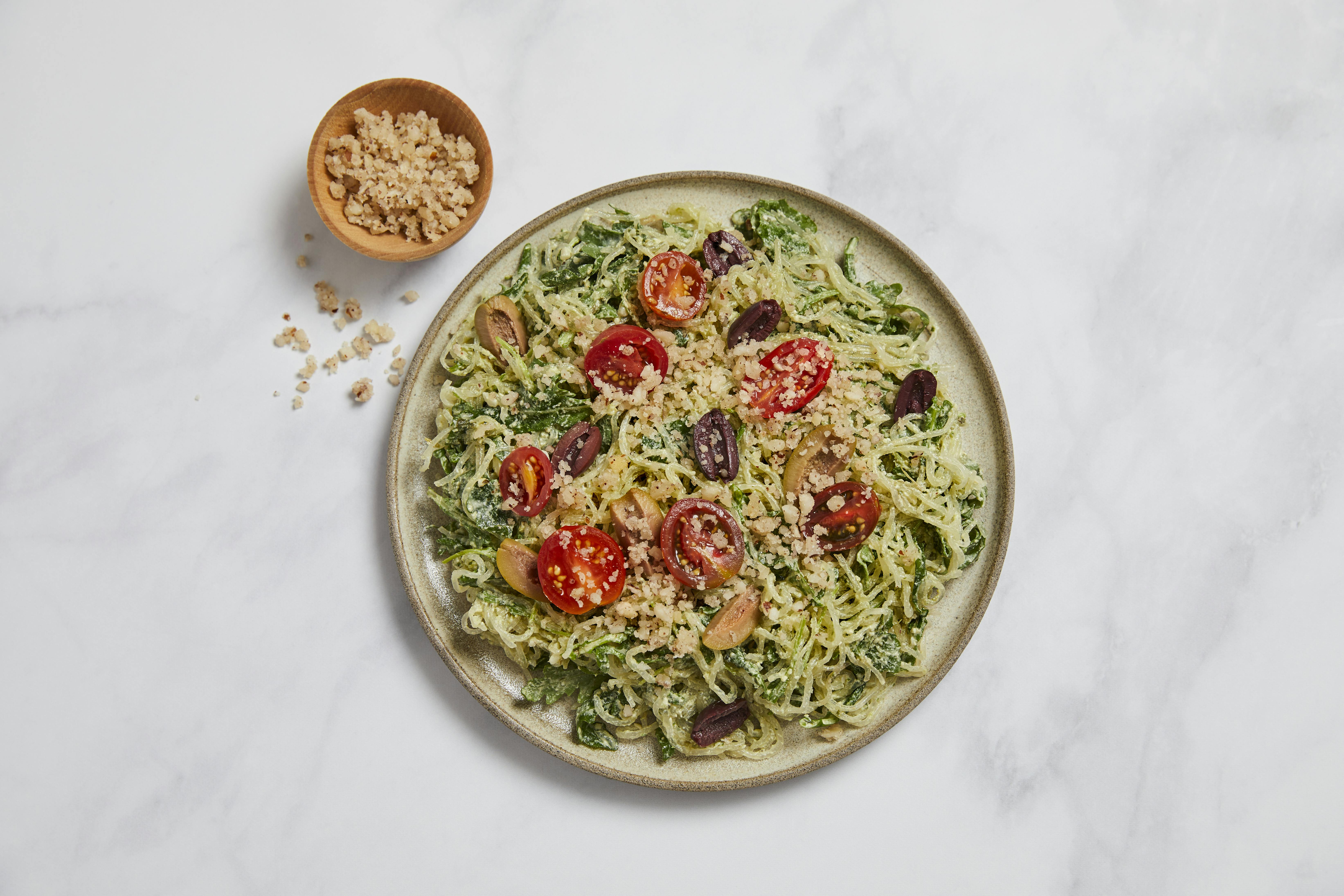
How To Eat A Plant Based Diet
By Danielle McAvoy
December 11, 2019
A Plant-based diet means eating foods that come from plants and little to no foods that are derived from animals.
Plant-based eating is popular because people are increasingly interested in how their food choices affect their health as well as the environment. There is strong research on the many health benefits of a plant-based diet, and growing awareness of how much livestock production contributes to pollution, greenhouse gases, deforestation, and excessive land and water use. Studies suggest that eating more plant-based could be the “single biggest way” to reduce your environmental impact on earth.
As interest in a plant-based diet increases, so does the supply of plant-based options. The availability and number of plant-based options in grocery stores and in restaurants has increased dramatically, making it easier to make choices that are good for both the body and the planet.
What foods are in, and what’s out on a plant-based diet?
Plant-based is slightly different than vegan, where the primary focus is to excludeanimal products, including honey. Plant-based is more focused on eating whole, unprocessed, mostly plant foods.
A plant-based diet also focuses on as many whole, unprocessed foods as possible. On a strictly plant-based diet, you eat lots of vegetables, fruits, grains, legumes, plant-based proteins like tofu and tempeh, nuts and nut butters, seeds, plant-based milks, and oils.
Many people eat mostly plant-based but include small amounts of meat, seafood, dairy, or eggs.
The benefits of eating a plant based diet
The benefits of a plant-based diet are remarkable. Research has shown that plant-based diets tend to be higher in healthy fats and lower in harmful saturated fats, which significantly reduces the risk of high cholesterol and heart disease.
They also tend to be higher in fiber, which reduces the risk of diabetes and improves gut health. Plant-based diets are typically high in antioxidants, which help fight cell damage that can lead to dementia, Alzheimer’s and general cognitive decline.
People who eat a mostly plant-based diet are less likely to be overweight and are actually more likely to live longer due to the reduced risk of many diseases.
What to expect as you transition to a plant based diet
Eating more plants is likely to increase the amount of fiber and antioxidants in your diet, as well as reduce the amount of harmful fats and chemicals from processed foods. When shifting toward a more plant-based approach, this decrease in processed foods and increase in fiber may result in a few things:
- Weight loss – cutting out high-calorie processed foods and eating more fiber, which helps you feel full on less calories, could result in weight loss.
- Some initial bloating – as your gut gets used to more fiber and the diversity of your gut bacteria improves, you may feel bloated or have gas. Ultimately, a healthier gut is linked to tons of other health benefits, including mood.
- More stable energy – fiber helps regulate blood sugar levels, so between adding more fiber and cutting out sugary processed foods, you are less likely to have energy spikes and crashes.
Need help starting or maintaining your plant based diet? Territory delivers. Literally.
Territory makes it easy to eat any level of plant-based. The vegan menu excludes all animal ingredients, while the vegetarian menu includes some eggs and honey.
If you’re eating mostly plant-based with some animal proteins, Territory’s got that, too. The independent local chefs Territory partners with use only whole, unprocessed foods, making any Territory meal an excellent (and delicious) support for a plant-based approach.
*There are some nutrients in animal products that are harder to get from plant-based sources.
- Vitamin B12 and iron are two of the main nutrients that strictly plant-based eaters could develop a deficiency in. A deficiency in either of these nutrients could lead to anemia.
- While red meat is a great source of both of these nutrients, anyone following a strictly plant-based diet should consider a B12 supplement or eat foods high in B12 such as fortified milks or nutritional yeast.
- For iron, include spinach, kidney beans, black beans, and soy beans.
- Omega-3 fats are also harder to get from plant-based sources. Walnuts, hemp, and flax are good sources of omega-3s, but lacking in EPA and DHA. While someone on a strictly plant-based diet may also want to consider an omega-3 supplement, salmon and eggs are excellent sources of omega-3s.
Want to know more about the Plant-Based Diet?
Browse more plant-based diet insights and tips in our plant-based hub. Save time and energy with our Plant Based Delivery Service.